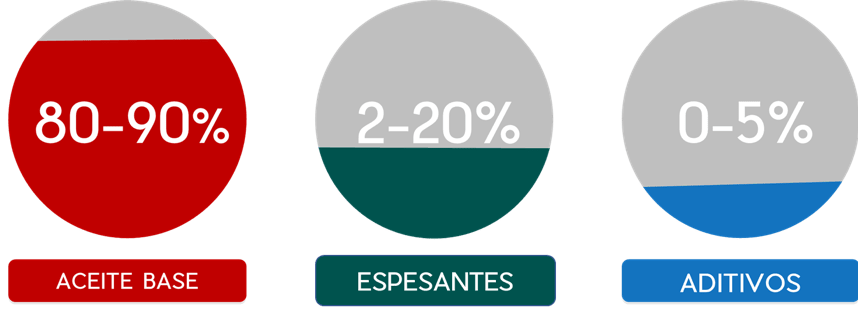What is and when to use an industrial grease?
Choosing the right specialized grease for any equipment guarantees a good lubrication condition for any machine element.
Lubricating greases are defined as semifluids resulting from the dispersion of a thickener in a liquid (lubricant oil). Their composition usually ranges from 80 to 90% by weight of base oil, 2 to 20% of thickener and the rest are additives.
 Image 01 Components of a lubricating grease
Image 01 Components of a lubricating grease
Properties of a lubricating grease
Generally classified according to their consistency, lubricating greases are also grouped according to their components. That’s why they are referred to as mineral, semi-synthetic and fully synthetic greases depending on whether they have a mineral base oil, a semi-synthetic base oil or a synthetic base oil.
 Image 02 Industrial grease
Image 02 Industrial grease
The main properties of a grease are:
This are some of most relevant advantages that greases have over a lubricant oils:
When to use a grease?
Lubricating greases are not always the best choice depending on the circumstances. There are certain conditions and technical limitations that make a lubricating oil a better option. Here are some examples:
It’s possible to find high performance greases that have readily biodegradable bases, come in handy where there is potential for accidental spills.
There are also food grade greases that can be in incidental contact with food during production, without posing a risk to the consumer.
SHARE ARTICLE





Join our newsletter
Get the newest articles and be up to date on everything that happens on the lubrication world.